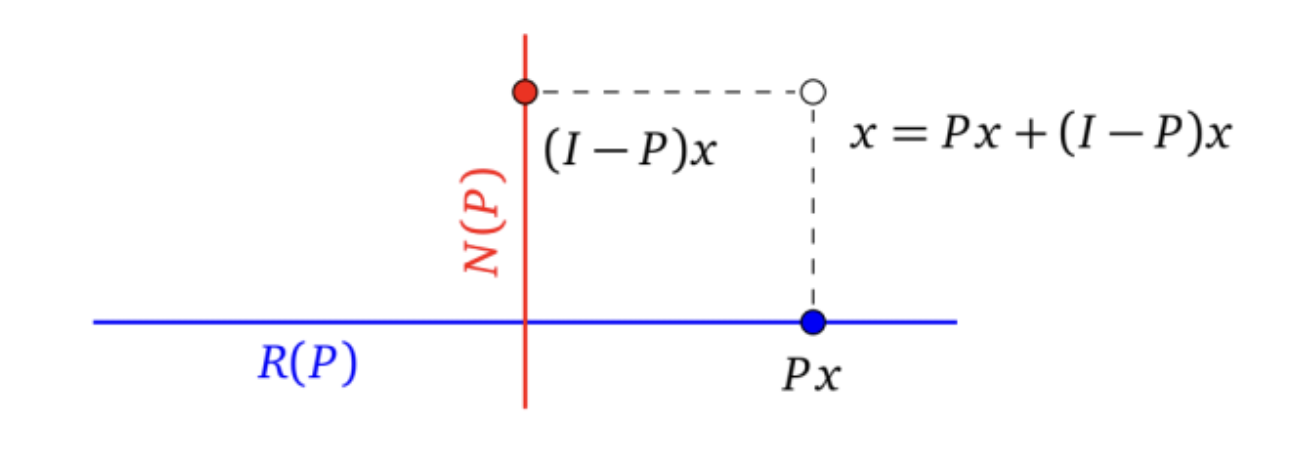A matrix is orthogonal if
This means that the columns of are orthogonal to each other.
Notation: : transpose conjugate
Unitary: same for complex matrices: .
Orthogonal matrices are very important in numerical linear algebra. They often guarantee that an algorithm will be accurate.
Orthogonal matrices are isometries, that is, they conserve the 2-norm of a vector:
If is square, then its inverse is .
Consider a unit vector then the square matrix
is orthogonal and is a reflection matrix. It satisfies: and .
Cartan–Dieudonné theorem: Every square orthogonal transformation in can be described as the composition of at most reflections: , where . If , is the identity matrix.
Proof: this is a proof by induction. If , is either 1 (identity) or (reflection). Let’s assume that the theorem is true for . Consider the canonical basis , …, . Define . We can build a reflection (perhaps equal to the identity) such that . is square orthogonal:
Moreover matrix has the form
The last row must have zeros otherwise cannot be orthogonal. By induction, the matrix is orthogonal and can be written as a product of at most reflections. Since is a reflection, can be written as a product of at most reflections.
The matrix is not equal to if is rectangular (i.e., ).
The matrix represents an orthogonal projection onto along .

Dot product, Vector norms, Operator and matrix norms, Projection